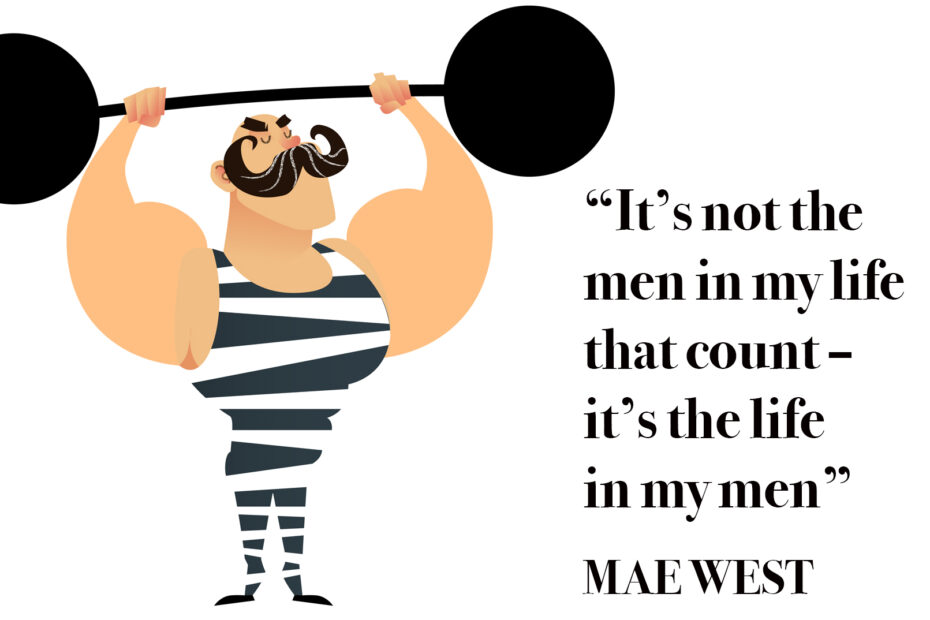A series of articles on various topics written just for men (and for the women who want to sneak a look). This one is about men’s health and manliness. If you find them interesting, do leave a comment and pass them on.
Best regards, John
Putting the Man Back into Manliness
“It’s not the men in my life that count – it’s the life in my men,” said Mae West.
Doubtless, if she could observe the social experiments of our current “enlightened” era, she’d be bewildered by the attempts of gender ideologues to feminise and domesticate men – to squeeze the masculinity out of them. Sure, most women like their men to be tender, attentive, respectful, and caring – but not as a substitute for manliness, as part of it.
Whilst manliness is undoubtedly vital to the basic biological agenda of getting humans together and mating successfully, it also has much wider significance. Men value themselves if they feel and perceive themselves as manly; it is something that men are prepared to go to extraordinary lengths to attain; they are often prepared to suffer and die in the quest for it. And whilst this is certainly about men needing to be accepted and to have their role recognized and validated by society, manliness has an even deeper, often unrecognized, meaning and potential. In classical history manliness was synonymous with virtue. Virtue was considered its most important, attractive, and distinguishing characteristic; an idea little recognised in modern society.
It is interesting to note that the words virility and virtue actually have convergent origins in the original Latin language from which they derive. Virtue is an idea that is replete with passion, courage, strength, masculine fierceness, generosity, loyalty, humility, nobility, compassion, protectiveness, and justice. If that sounds a bit Arthurian or chivalrous, well that’s because it is. The notion of chivalry was an attempt to codify the best of what manliness was thought to be.
Men who exhibit this kind of manliness, argues philosopher Sam Keen, are what society is most in need of: “…men alive with the virtue of moral outrage… fierce men, rich in considered judgment, who still have thunder and lightning in them.”
If the notion of virtue evokes negative reaction in the modern mind – if virtue tends to sound moralistic or passé, what could be a stronger case for its immediate contemporary relevance? We would do well to consider what caliber of leadership and what depth of moral integrity we’ve settled for, when some of our leaders appear incapable of subordinating economic considerations to environmental and humanitarian necessities; when “playing to the gallery”, and exploiting the fears and anxieties of the ignorant, are preferred over proposing creative solutions or exercising moral imagination; when “boy psychology” is mistaken for and allowed to supplant “man psychology.”
In a world becoming increasingly dangerous and uncertain – a world that in so many ways appears to have lost its way, the problem is not that we need less manliness (as gender feminists have suggested), but more of it. Rather than denigrating men or seeking to demasculinise them, we have a good deal more to gain by encouraging men to be more manly; by insisting that the man be put back into manliness.
